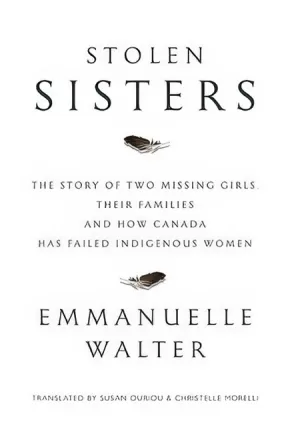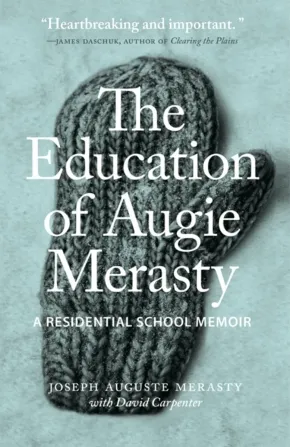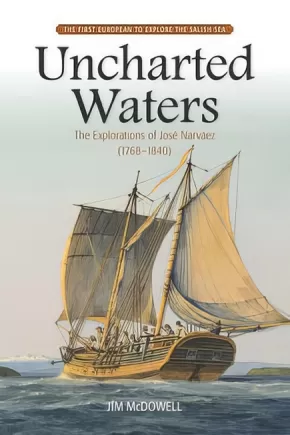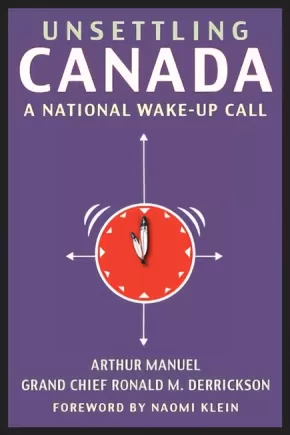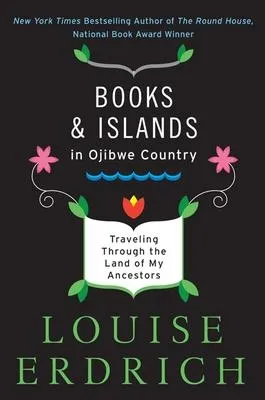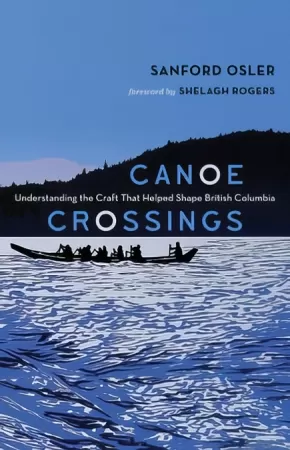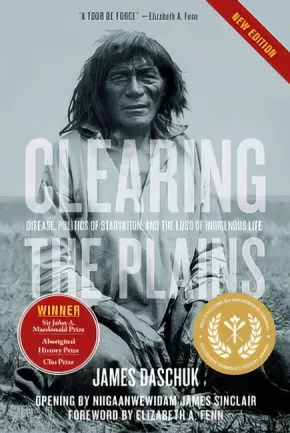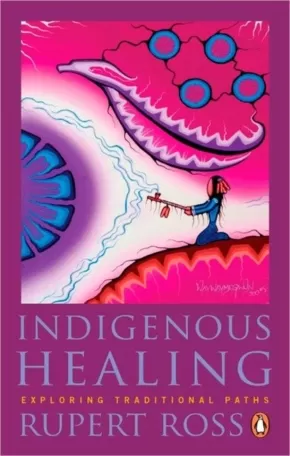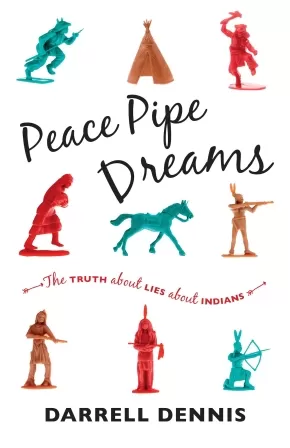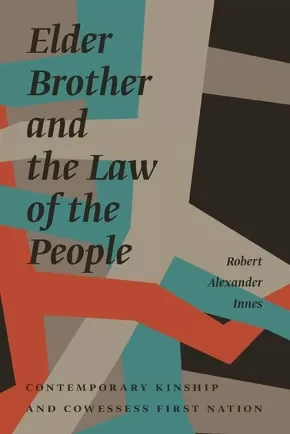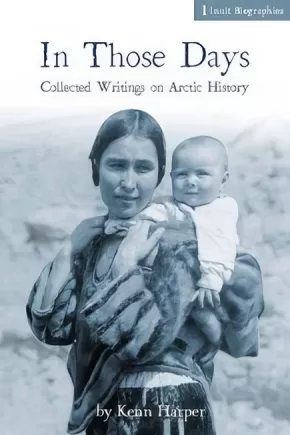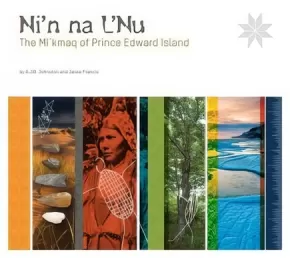History
Synopsis:
In 2014, the nation was rocked by the brutal violence against young Aboriginal women Loretta Saunders, Tina Fontaine and Rinelle Harper. But tragically, they were not the only Aboriginal women to suffer that year. In fact, an official report revealed that since 1980, 1,200 Canadian Aboriginal women have been murdered or have gone missing. This alarming official figure reveals a national tragedy and the systemic failure of law enforcement and of all levels of government to address the issue.
Journalist Emmanuelle Walter spent two years investigating this crisis and has crafted a moving representative account of the disappearance of two young women, Maisy Odjick and Shannon Alexander, teenagers from western Quebec, who have been missing since September 2008. Via personal testimonies, interviews, press clippings and official documents, Walter pieces together the disappearance and loss of these two young lives, revealing these young women to us through the voices of family members and witnesses.
Stolen Sisters is a moving and deeply shocking work of investigative journalism that makes the claim that not only is Canada failing its First Nations communities, but that a feminicide is taking place.
Additional Information
240 pages | 5.00" x 8.00"
Synopsis:
The Education of Augie Merasty offers a courageous and intimate chronicle of life in a residential school.
Now a retired fisherman and trapper, Joseph A. (Augie) Merasty was one of an estimated 150,000 First Nations, Inuit, and Metis children who were taken from their families and sent to government-funded, church-run schools, where they were subjected to a policy of "aggressive assimiliation."As Merasty recounts, these schools did more than attempt to mold children in the ways of white society. They were taught to be ashamed of their native heritage and, as he experienced, often suffered physical and sexual abuse.Even as he looks back on this painful part of his childhood, Merasty’s generous and authentic voice shines through.
Awards
- 2016 Burt Award Second Place Winner
Reviews
"At 86, Augie Merasty has been a lot of things: Father. Son. Outdoorsman. Homeless. But now he is a first-time author, and the voice of a generation of residential-school survivors.... The Education of Augie Merasty is the tale of a man not only haunted by his past, but haunted by the fundamental need to tell his own story... one of the most important titles to be published this spring." —Globe and Mail
"[Augie] wrote his memoir to show people the unbelievable atrocities suffered by so many Indigenous people and in the hope that others would come forward to tell their stories of what happened in the residential schools." —Eagle Feather News
"This book is so much bigger than its small size. It is a path to healing. We cannot change history, but we can acknowledge it, learn about it, and remember it." —Prairies North
"The Education of Augie Merasty might be a small book, but it carries a punch to it that all Canadian need to read and understand." —Rabble
"A truly extraordinary memoir by a truly extraordinary man." —Midwest Book Review
"Carpenter's introduction and afterword... allow us to come to better understand Augie's 'sometimes chaotic, sometimes heroic aftermath of his life,' as Carpenter describes his last decade. Where Augie focuses on physical scars, Carpenter's experiences with Augie illustrate the long-term impacts on his residential school experience. And with The Education of Augie Merasty, he helps Merasty--who could be any number of individuals we each pass on the street--find his voice." —Active History
"Unsettling and profound, and good." —Blacklock's Reporter
"In this book I have seen horror through eyes of a child." —James Daschuk, author of Clearing the Plains
"A story in which our entire nation has an obscure and dark complicity." —David Carpenter, co-author of The Education of Augie Merasty and author of The Gold and other books
Educator Information
The Canadian Indigenous Books for Schools list recommends this resource for Grades 9-12 English Language Arts and Social Studies.
Caution: Mature subject matter and descriptions of discrimination, sexual/physical violence, and substance abuse.
Additional Information
105 pages | 4.25" x 6.53" | Hardcover
Synopsis:
Jim McDowell's new biography of the little-known Spanish explorer José María Narváez, reveals his significant discoveries during the European exploration of what is now Canada's Pacific Northwest Coast. Narváez was the first European to investigate a Russian fur-trading outpost in the Gulf of Alaska in 1788. The following year he became the first Spaniard to reconnoitre Juan de Fuca Strait. In 1791, he charted the interiors of three large inlets on Vancouver Island's west coast, discovered a vast inland sea to the east (today's Salish Sea), mapped the entire gulf, located two prospective entrances to the fabled Northwest Passage, made first contact with Aboriginal peoples, and found the site of what became western Canada's largest city - Vancouver, British Columbia. Narvaez also undertook diplomatic missions around the Pacific Ocean, charted the waters of the Philippines, and engaged in the political upheaval that transformed New Spain into México between 1796 and his death in 1840.
Reviews
McDowell's biography is an eloquent and informed contribution to cultural diversity and accurate colonial history in what is now British Columbia." - BC BookWorld
Additional Information
300 pages | 6.00" x 9.00" | b&w photos
Synopsis:
Unsettling Canada, a Canadian bestseller, is built on a unique collaboration between two First Nations leaders, Arthur Manuel and Grand Chief Ron Derrickson.
Both men have served as chiefs of their bands in the B.C. interior and both have gone on to establish important national and international reputations. But the differences between them are in many ways even more interesting. Arthur Manuel is one of the most forceful advocates for Aboriginal title and rights in Canada and comes from the activist wing of the movement. Grand Chief Ron Derrickson is one of the most successful Indigenous businessmen in the country.
Together the Secwepemc activist intellectual and the Syilx (Okanagan) businessman bring a fresh perspective and new ideas to Canada’s most glaring piece of unfinished business: the place of Indigenous peoples within the country’s political and economic space. The story is told through Arthur’s voice but he traces both of their individual struggles against the colonialist and often racist structures that have been erected to keep Indigenous peoples in their place in Canada.
In the final chapters and in the Grand Chief’s afterword, they not only set out a plan for a new sustainable indigenous economy, but lay out a roadmap for getting there.
Reviews
“This is the back story of both grassroots and backroom struggles that created the context in which we find ourselves today, one in which a new generation of First Nations leaders is demanding sovereignty and self-determination, and more and more non-Indigenous Canadians finally understand that huge swaths of this country we call Canada is not ours - or our government's - to sell.” — Naomi Klein, from the Foreword
“Pragmatic and helpful, this is a timely book for our fraught and political moment” — Quill & Quire
"Unsettling Canada is a breathtakingly beautiful story of Indigenous resistance, strength, and movement building. Unsettling Canada echoes the power of George Manuel's The Fourth World, centering the heart of the narrative deep inside a kind of Indigenous intelligence rarely shared outside our communities. This is the critical conversation that Canada and Indigenous peoples must have because it is centred on land, and, therefore, it is one of the most important books on Indigenous politics I've ever read." — Leanne Betasamosake Simpson, author of Dancing on Our Turtle's Back
Educator Information
This resource would be useful for courses in history, social justice, political science, and social studies. Recommended for students in grades 10 to 12 or those at a college/university level.
CONTENTS
Foreword Naomi Klein
Chapter 1 The Lay of the Land
Chapter 2 Institutionalizing a People: Indian Hospital, School, Jail
Chapter 3 White Paper to Red Paper: Drawing the Battle Lines
Chapter 4 Occupy Indian Affairs: Native Youth in Action
Chapter 5 Aboriginal Title: No Surrender
Chapter 6 The Constitution Express: A Grassroots Movement
Chapter 7 Don’t Let Them Bully You: A Business Interlude
Chapter 8 A Chief’s Concerns: Finances, the People, and the Land
Chapter 9 Upping the Ante: RCAP and a Landmark Court Decision
Chapter 10 The Battle in the Forest: The Trade in Indian Trees
Chapter 11 Sun Peaks to Geneva: Playgrounds and Fortresses
Chapter 12 Taking It to the Bank: Accounting for Unpaid Debt
Chapter 13 The Fourth World: A Global Movement
Chapter 14 Line of Defence: Side by Side for Mother Earth
Chapter 15 No Half Measures: The Price of Uncertainty
Chapter 16 Days of Protest: Young Activists Come Together
Chapter 17 The End of Colonialism
Afterword Grand Chief Ronald M. Derrickson
Acknowledgements
Appendix United Nations Declaration on the Rights of Indigenous Peoples
Notes
Index
Additional Information
288 pages | 6.00" x 9.00"
Synopsis:
A Canadian bestseller and winner of the 2016 Canadian Historical Association Aboriginal History Book Prize, Unsettling Canada is a landmark text built on a unique collaboration between two First Nations leaders.
Arthur Manuel (1951-2017) was one of the most forceful advocates for Indigenous title and rights in Canada; Grand Chief Ron Derrickson, one of the most successful Indigenous businessmen in the country. Together, they bring a fresh perspective and bold new ideas to Canada's most glaring piece of unfinished business: the place of Indigenous peoples within the country's political and economic space.
This vital second edition features a foreword by award-winning activist Naomi Klein and an all-new chapter co-authored by law professor Nicole Schabus and Manuel's son, Ska7cis, honouring the multi-generational legacy of the Manuel family's work.
Reviews
“Pragmatic and helpful, this is a timely book for our fraught and political moment” — Quill & Quire
"Unsettling Canada is a breathtakingly beautiful story of Indigenous resistance, strength, and movement building. Unsettling Canada echoes the power of George Manuel's The Fourth World, centering the heart of the narrative deep inside a kind of Indigenous intelligence rarely shared outside our communities. This is the critical conversation that Canada and Indigenous peoples must have because it is centred on land, and, therefore, it is one of the most important books on Indigenous politics I've ever read." — Leanne Betasamosake Simpson, author of Dancing on Our Turtle's Back
Educator Information
This resource would be useful for courses in history, social justice, political science, and social studies. Recommended for students in grades 10 to 12 or those at a college/university level.
Additional Information
320 pages | 6.00" x 9.00"
Synopsis:
How knowledge of plants and environments has been applied and shared over centuries and millennia by Indigenous peoples.
Volume 1: The History and Practice of Indigenous Plant Knowledge
Volume 2: The Place and Meaning of Plants in Indigenous Cultures and Worldviews
Nancy Turner has studied Indigenous peoples' knowledge of plants and environments in northwestern North America for over forty years. In Ancient Pathways, Ancestral Knowledge, she integrates her research into a two-volume ethnobotanical tour-de-force. Drawing on information shared by Indigenous botanical experts and collaborators, the ethnographic and historical record, and from linguistics, palaeobotany, archaeology, phytogeography, and other fields, Turner weaves together a complex understanding of the traditions of use and management of plant resources in this vast region. She follows Indigenous inhabitants over time and through space, showing how they actively participated in their environments, managed and cultivated valued plant resources, and maintained key habitats that supported their dynamic cultures for thousands of years, as well as how knowledge was passed on from generation to generation and from one community to another. To understand the values and perspectives that have guided Indigenous ethnobotanical knowledge and practices, Turner looks beyond the details of individual plant species and their uses to determine the overall patterns and processes of their development, application, and adaptation.
Volume 1 presents a historical overview of ethnobotanical knowledge in the region before and after European contact. The ways in which Indigenous peoples used and interacted with plants - for nutrition, technologies, and medicine - are examined. Drawing connections between similarities across languages, Turner compares the names of over 250 plant species in more than fifty Indigenous languages and dialects to demonstrate the prominence of certain plants in various cultures and the sharing of goods and ideas between peoples. She also examines the effects that introduced species and colonialism had on the region's Indigenous peoples and their ecologies.
Volume 2 provides a sweeping account of how Indigenous organizational systems developed to facilitate the harvesting, use, and cultivation of plants, to establish economic connections across linguistic and cultural borders, and to preserve and manage resources and habitats. Turner describes the worldviews and philosophies that emerged from the interactions between peoples and plants, and how these understandings are expressed through cultures’ stories and narratives. Finally, she explores the ways in which botanical and ecological knowledge can be and are being maintained as living, adaptive systems that promote healthy cultures, environments, and indigenous plant populations.
Ancient Pathways, Ancestral Knowledge both challenges and contributes to existing knowledge of Indigenous peoples' land stewardship while preserving information that might otherwise have been lost. Providing new and captivating insights into the anthropogenic systems of northwestern North America, it will stand as an authoritative reference work and contribute to a fuller understanding of the interactions between cultures and ecological systems.
Educator Information
Table of Contents
Volume One
Figures and Tables ix
Preface and Acknowledgments xv
Note on the Writing System Used in This Book xxxi
1 Introduction to the Book: Ethnobotanical and Ethnoecological Knowledge across Time and Space 3
Part One | History
2 Into the Past: Ancient Relationships among People, Plants, and Environments 43
3 Reflections on Plant Names in Understanding the History of People-Plant Relationships 117
4 Change, Loss, and Adaptation of Plant Traditions 191
Part Two | Development
5 Plants as Food: Development, Diversity, Dissemination 263
6 Plant Use in Technology over Time and Space 335
7 Herbal Medicine and Healing Traditions 415
Appendix 1: Major Sources of Information for the Book 467
Appendix 2: Names of Selected Native Plant Species in Indigenous Languages of Northwestern North America 473
Appendix 3: Names of Two Introduced Plants (Turnip and Potato) in Indigenous Languages of Northwestern North America 507
Notes 515
Volume Two
Figures and Tables ix
Preface xiii
Part Three - Integration and ManaGement
8 Moving for the Harvest: Seasonal Rounds and Plant Knowledge 3
9 Cultural Institutions Related to Ethnobotanical Knowledge and Practice 51
10 Trade and Exchange: Sharing Plant Products and Ethnobotanical Knowledge across Geographical and Cultural Space 101
11 Management and Sustainability of Plant Resources and Habitats 145
Part Four - UnderlyinG Philosophy
12 Narratives in Transmission of Ethnobotanical Knowledge 231
13 Worldview and Belief Systems in Ethnobotanical Knowledge Systems 297
14 Ancient Pathways and New Pathways for Retaining and Renewing Botanical and Environmental Knowledge Systems for the Future 351
Notes 413
References 441
Index of Plant Species 503
General Index 513
Additional Information
1056 pages | 6.00" x 9.00" | Hardcover
Synopsis:
For more than three decades, bestselling author Louise Erdrich has enthralled readers with dazzling novels that paint an evocative portrait of Native American life. From her dazzling first novel, Love Medicine, to the National Book Award-winning The Round House, Erdrich’s lyrical skill and emotional assurance have earned her a place alongside William Faulkner and Willa Cather as an author deeply rooted in the American landscape.
In Books and Islands in Ojibwe Country, Erdrich takes us on an illuminating tour through the terrain her ancestors have inhabited for centuries: the lakes and islands of southern Ontario. Summoning to life the Ojibwe's sacred spirits and songs, their language and sorrows, she considers the many ways in which her tribe—whose name derives from the word ozhibii'ige, "to write"—have influenced her. Her journey links ancient stone paintings with a magical island where a bookish recluse built an extraordinary library, and she reveals how both have transformed her.
A blend of history, mythology, and memoir, Books and Islands in Ojibwe Country is an enchanting meditation on modern life, natural splendor, and the ancient spirituality and creativity of Erdrich's native homeland—a long, elemental tradition of storytelling that is in her blood.
Additional Information
160 pages | 5.31" x 8.00" | 15 Illustrations, 1 Map | Paperback
Synopsis:
“A comprehensive and well-informed review of canoeing and kayaking in British Columbia.” —BC Studies
Often called one of the Seven Wonders of Canada, the canoe has played a particularly important role in British Columbia. This seemingly simple watercraft allowed coastal First Nations to hunt on the open ocean and early explorers to travel the province’s many waterways. Always at the crossroads of canoe culture, BC today is home to innovative artists and designers who have rediscovered ancient canoe-building techniques, as well as community leaders who see the canoe’s potential to bring people together in exciting, inspiring ways.
The story of Canoe Crossings begins some fifteen thousand years ago, when, as compelling new evidence suggests, the first humans to reach the Americas did so by canoe down the West Coast. It continues through the centuries, chronicling the evolution of the canoe and its impact on the various people who used it to explore, hunt, trade, fight, race, create, and even heal. The book contains dozens of stories of colourful, passionate people who have contributed to the province’s canoe culture, including a teenager who lived ninety feet up in a tree house while designing and building the world’s longest kayak; a group of high school students who practised on a tiny lake and went on to win several World Dragon Boat Championships; and at-risk Aboriginal youth who reconnected with their traditional culture through annual “big canoe” trips.
Canoe Crossings will appeal to anyone who has ever sought adventure, found solace, or seen beauty in a canoe or wondered about the origins of its design and use in British Columbia and beyond.
Reviews
“The canoe is a threshold vessel—a skin, a fabric, and some bark between water and sky. Floating is some kind of miracle, some kind of dream. All canoeists are dreamers to a degree. As you will see in Canoe Crossings, the canoe has always brought diverse groups of people together, both for joy and for common purpose, and it always will." —from the foreword by Shelagh Rogers
"An important and substantial contribution to canoe literature and to the significance of this watercraft in BC. The blend of history, present-day, and personal accounts is sensitively and fascinatingly presented. A highly informative and captivating read." —Käri-Ann Thor, President, Recreational Canoeing Association of British Columbia
Additional Information
192 pages | 5.50" x 8.50"
Synopsis:
Revealing how Canada's first Prime Minister used a policy of starvation against Indigenous people to clear the way for settlement, the multiple award-winning Clearing the Plains sparked widespread debate about genocide in Canada.
In arresting, but harrowing, prose, James Daschuk examines the roles that Old World diseases, climate, and, most disturbingly, Canadian politics—the politics of ethnocide—played in the deaths and subjugation of thousands of Indigenous people in the realization of Sir John A. Macdonald’s "National Dream."
It was a dream that came at great expense: the present disparity in health and economic well-being between Indigenous and non-Indigenous populations, and the lingering racism and misunderstanding that permeates the national consciousness to this day.
This new edition of Clearing the Plains has a foreword by Pulitzer Prize winning author, Elizabeth Fenn, an opening by Niigaanwewidam James Sinclair, and explanations of the book’s influence by leading Canadian historians. Called “one of the most important books of the twenty-first century” by the Literary Review of Canada, it was named a “Book of the Year” by The Globe and Mail, Quill & Quire, the Writers’ Trust, and won the Sir John A. Macdonald Prize, among many others.
Reviews
"Clearing the Plains is a tour de force that dismantles and destroys the view that Canada has a special claim to humanity in its treatment of indigenous peoples. Daschuk shows how infectious disease and state-supported starvation combined to create a creeping, relentless catastrophe that persists to the present day. The prose is gripping, the analysis is incisive, and the narrative is so chilling that it leaves its reader stunned and disturbed. For days after reading it, I was unable to shake a profound sense of sorrow. This is fearless, evidence-driven history at its finest." —Elizabeth A. Fenn, author of Pox Americana
"Required reading for all Canadians." —Candace Savage, author of A Geography of Blood
"Clearly written, deeply researched, and properly contextualized history...Essential reading for everyone interested in the history of indigenous North America." —J.R. McNeill, author of Mosquito Empires
Additional Information
386 pages | 6.00" x 9.00" | 25 b&w photos, 7 maps and figures | Paperback
Synopsis:
The First Nations of British Columbia, now in its third edition, is a concise and accessible overview of BC's First Nations peoples, cultures, and issues. Robert J. Muckle familiarizes readers with the history, diversity, and complexity of First Nations to provide a context for contemporary concerns and initiatives. This latest edition of the classic work has been fully revised, with new chapters added and previous ones rewritten, arguments reframed in light of current developments, and resources brought right up to date. The First Nations of British Columbia is an indispensable resource for teachers and students and an excellent introduction for anyone interested in BC First Nations.
Synopsis:
Imagine a world in which people see themselves as embedded in the natural order, with ethical responsibilities not only toward each other, but also toward rocks, trees, water and all nature. Imagine seeing yourself not as a master of Creation, but as the most humble, dependent and vulnerable part.
Rupert Ross explores this indigenous world view and the determination of indigenous thinkers to restore it to full prominence today. He comes to understand that an appreciation of this perspective is vital to understanding the destructive forces of colonization. As a former Crown Attorney in northern Ontario, Ross witnessed many of these forces. He examines them here with a special focus on residential schools and their power to destabilize entire communities long after the last school has closed. With help from many indigenous authors, he explores their emerging conviction that healing is now better described as “decolonization therapy.” And the key to healing, they assert, is a return to the traditional indigenous world view.
The author of two previous bestsellers on indigenous themes, Dancing with a Ghost and Returning to the Teachings, Ross shares his continuing personal journey into traditional understanding with all of the confusion, delight and exhilaration of learning to see the world in a different way.
Ross sees the beginning of a vibrant future for indigenous people across Canada as they begin to restore their own definition of a “healthy person” and bring that indigenous wellness into being once again. Indigenous Healing is a hopeful book, not only for indigenous people, but for all others open to accepting some of their ancient lessons about who we might choose to be.
Additional Information
344 pages | 5.25" x 8.20" | Paperback
Synopsis:
In 2015-2016, Peace Pipe Dreams was the award recipient for First Nation Communities Read.
Darrell Dennis is a stereotype-busting, politically incorrect Native American/Aboriginal/Shuswap (Only he's allowed to call himself an "Indian." Maybe. Under some circumstances). With a large dose of humour and irreverence, he untangles some of the truths and myths about First Nations: Why do people think Natives get free trucks, and why didn't he ever get one? Why does the length of your hair determine whether you’re good or bad? By what ratio does the amount of rain in a year depend on the amount of cactus liquor you consume?
In addition to answering these burning questions, Dennis tackles some tougher subjects. He looks at European-Native interactions in North America from the moment of first contact, discussing the fur trade, treaty-signing and the implementation of residential schools. Addressing misconceptions still widely believed today, Dennis explains why Native people aren't genetically any more predisposed to become alcoholics than Caucasians; that Native religion doesn't consist of worshipping rocks, disappearing into thin air, or conversing with animals; and that tax exemptions are so limited and confusing that many people don't even bother.
Employing pop culture examples, personal anecdote and a cutting wit, Darrell Dennis deftly weaves history with current events to entertain, inform and provide a convincing, readable overview of First Nations issues and why they matter today.
Additional Information
224 pages | 5.65" x 8.52"
Synopsis:
In the pre-reserve era, Aboriginal bands in the northern plains were relatively small multicultural communities that actively maintained fluid and inclusive membership through traditional kinship practices. These practices were governed by the Law of the People as described in the traditional stories of Wîsashkêcâhk, or Elder Brother, that outlined social interaction, marriage, adoption, and kinship roles and responsibilities.
In Elder Brother and the Law of the People, Robert Innes offers a detailed analysis of the role of Elder Brother stories in historical and contemporary kinship practices in Cowessess First Nation, located in southeastern Saskatchewan. He reveals how these tradition-inspired practices act to undermine legal and scholarly definitions of “Indian” and counter the perception that First Nations people have internalized such classifications. He presents Cowessess’s successful negotiation of the 1996 Treaty Land Agreement and their high inclusion rate of new “Bill-C31s” as evidence of the persistence of historical kinship values and their continuing role as the central unifying factor for band membership.
Additional Information
216 pages | 6.00" x 9.00" | Paperback
Synopsis:
Arctic historian Kenn Harper gathers the best of his columns about Inuit history, which appear weekly in Nunatsiaq News, in this exciting new series of books.
Each installment of In Those Days: Collected Columns on Arctic History will cover a particularly fascinating aspect of traditional Inuit life. In volume one, “Inuit Biographies,” Harper shares the unique challenges and life histories of several Inuit living in pre-contact times.
The result of extensive interviews, research, and travel across the Arctic, these amazing short life histories provide readers with a detailed understanding of their specific time and place.
Series Information
This book is part of the In Those Days series, a historical series that collects writings on Arctic history.
Additional Information
200 pages | 6.00" x 9.00"
Synopsis:
This lavishly-illustrated book tells a story through words and images that has never before been told, not in any single book. The focus is entirely on the Mi'kmaq of the Island, an island which for thousands of years has been known to the Mi'kmaq and their ancestors as Epekwitk. That name means "cradle on the sea" and no more poetic description of PEI has ever been penned. The story of the PEI Mi'kmaq is one of adaptation and perseverance across countless generations in the face of pervasive change. Today's environment is far from what it was millennia ago. So too, the economy, society, lifestyle, language and religion of the people has witnessed some dramatic shifts. Nonetheless, despite all the changes, today's Mi'kmaq feel deeply connected to the Island in its entirety and to their ancestors and the values they still share. This book tells those many stories, and communicates much more. While the book is a stand-alone publication, it is also a companion to a travelling exhibition of the same name.
- Winner of APMA Best Atlantic-Published Book Award
- Winner of PEI Book Award for Non-fiction

